By Melena Ryzik via nytimes.com
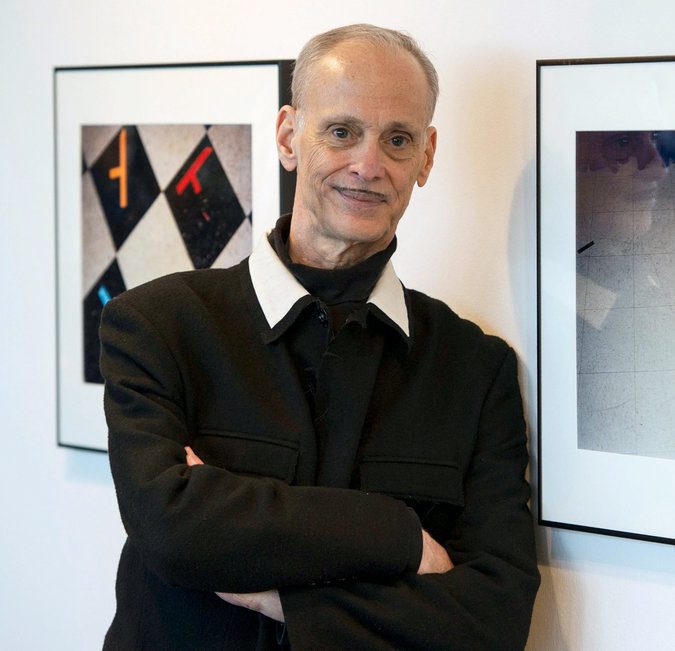
JOHN WATERS has been thinking a lot about the half-century lately.
“You are reaching me in Provincetown, Mass., where I have spent the last 50 summers,” he said one late August afternoon. “I hitchhiked here when I was asked to sort of not graduate onstage with my high school. I made that first movie then, ‘Hag in a Black Leather Jacket.’ I took LSD 50 years ago, too.”
More on all that in a bit. Mr. Waters, the filmmaker, author, artist, performer and provocateur, was considering the passage of time because on Friday, the Film Society of Lincoln Center will unveil Fifty Years of John Waters: How Much Can You Take? Running through Sept. 14, the retrospective includes screenings of his 12 feature films; early, little-seen shorts, including “Hag in a Black Leather Jacket”; and a selection of films he says he envies, like Roger Michell’s “The Mother,” about an affair between a grandmother and a pre-Bond Daniel Craig. (“Gerontophilia never seemed so exciting.”)
For Mr. Waters, 68, the journey from teenage auteur whose father bankrolled his first films — “I paid him back each time, with interest” — to canonic director of “Pink Flamingos” and “Hairspray” has been long and unexpected. The retrospective is “the first time I can say I’m really being honored without irony,” he said in a phone interview. “It’s like being alive at your funeral. I’m not going to get anything better.”
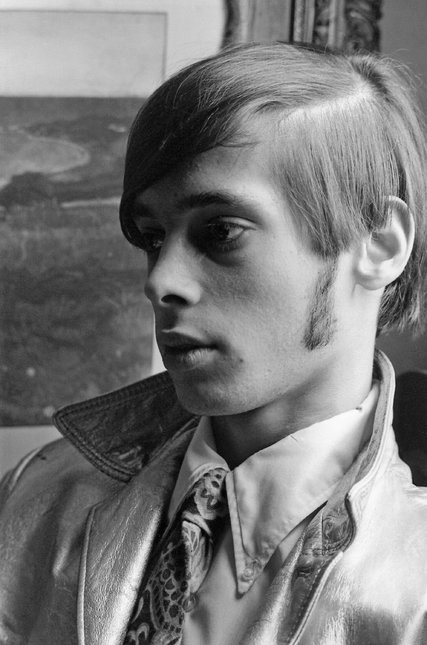
Mr. Waters, shown in 1964, is the focus of a 50-year retrospective at the Film Society of Lincoln Center. Credit Dudley Gray
He has relished being known as the Pope of Trash for 50 years. But even he has his limits. “I’ve been asked to be in every kind of parade,” he said. “I always say no. I think they’re kind of tacky.”
Here are excerpts from the conversation.
Q. Why were you asked not to graduate onstage from high school?
A. They said my hair was too long, which did not really go over in my Catholic high school, and I also got caught hooking all the time. By then, I knew what I wanted to be, and they weren’t going to let me. I certainly don’t go to my high school reunion. [Asked later what he meant by “hooking,” Mr. Waters said he meant playing hooky, though he added, “As a hitchhiker, you do all sorts of things.” He laughed. “I’ve done it all. You can print that.”]
Q. How did you develop your sense of style back then?
A. Thrift shops. The best thrift shops in Baltimore. We were so terrible. Divine used to take to the thrift shops a stapler and crayon to put our own prices on, cheaper. I was dressed like a hippie pimp. I had one shirt with tarantulas on it. And yet I read Vogue when I was 15. At that time, fashion was really big. It was always interesting, because it was another way to get on our parents’ nerves. Your parents never took your pictures in those years, because they hated how you looked.
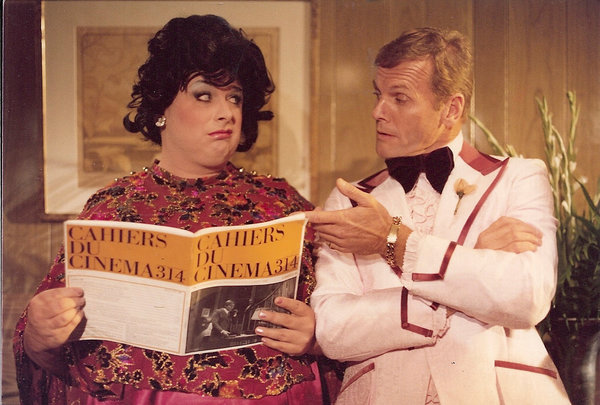
Divine, Mr. Waters’s longtime collaborator, with Tab Hunter in “Polyester” (1981). Credit Larry Dean/New Line Cinema
Q. These early photos of you, with long hair, sideburns and no mustache, are really startling.
A. I had a bad hair life. If you look at the shots, [the sideburns] looked like bacon. It really looked hideous — good hideous.
Q. Did you grow the mustache as a lark? When did it arrive?
A. I don’t have larks. I had it when we made “Multiple Maniacs,” so I would say ’69, ’70.
It was to further my hippie pimp look. Since we had no money for advertising, we had to market ourselves. I adored Little Richard; I wanted to be the only white guy who had it. I grew it and I grew it, and it didn’t really work that well, until Mink Stole’s sister Sique, who is still a great friend, said it just needs a little pencil. I thought, my God, the miracle of eyebrow pencil!
Q. Do you still pencil it in?
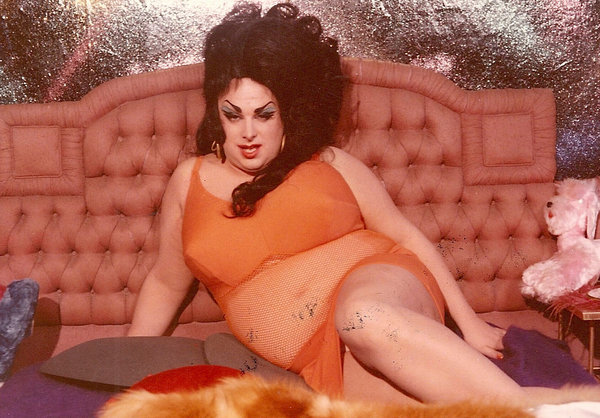
Divine in “Female Trouble” (1974). Credit Bruce Moore/New Line Cinema
A. Oh yeah. It’s still there, but it needs help.
Q. What is “Hag in a Black Leather Jacket” about?
A. I would say that it is a K.K.K. man marrying a white girl and a black guy on the roof of my mother’s house. It was very influenced by theater of the absurd. My girlfriend — it was that long ago! — does a ballet, and then she’s in a trash can. What it’s about, the same thing that “Hairspray” was about, in a weird way — just in a very amateurish, childish way. It was only shown once. From a beatnik coffee house to Lincoln Center, with no showings in between, and you’ll see why. But I’m not saying that my subject matter has ever changed.
Q. Where did your cinematic inspiration come from in the early days?
A. Jonas Mekas, that I still pray to every night because he is why I am where I am. I saw [his 1964 film] “The Brig,” I saw the Warhol, Kenneth Anger and all these movies. That was my “Citizen Kane.” But at the same time, we used to take LSD and go to Bergman movies. When I was a speed freak, we used to take Black Beauties and see four movies in a row. All day, and it was fun. I didn’t do destructive things on drugs, I did intellectual things. We would go to 42nd Street, and art movies, and then Lincoln Center. We used to go to the drive-in all the time. In Baltimore, they tested the blaxploitation movies in the grindhouse downtown. I grew up in those exploitation theaters. And now, there aren’t really exploitation movies. There was one, last year, “Spring Breakers,” and I picked it as my favorite movie. That’s why I’m showing “Final Destination” and “Of Unknown Origin.” It’s the best rat movie, that some may have forgotten. I have a soft spot for rat movies.
Q. Did you learn anything about yourself in looking back at your films?
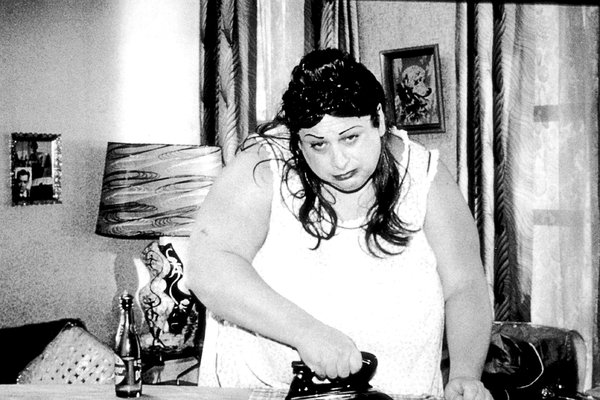
Divine in “Hairspray” (1988). Credit Henry Garfunkel/New Line Cinema,Warner Bros
A. I realized that I knew nothing when I made them. Everybody else went to school; I made those movies. They always found some kind of audience, even though they’re technically terrible. I talk about that in “Cecil B. Demented” [his 2000 comedy about an underground auteur]. Cecil B. Demented says, “Technique is nothing more than failed style.” And I still kind of believe that.
Q. What do you like about your early films?
A. The Kennedy assassination scene in “Eat Your Makeup” is kind of ballsy. And I really give my parents credit, because we filmed it in front of their house, and there was Divine crawling out of the car in the bloody Chanel suit. And they tried to understand, and I look back on that and realize how incredibly loving that was. At the time, I didn’t realize it.
Q. Your parents were very supportive, but they never saw “Pink Flamingos,” right?
A. They never saw it. My father paid for it, and I was very touched when he died, and we went to the safe deposit box, and he had the little things I sent him from the road — $50, $100 [payback notes]. But they were also mortified. The only time they weren’t was at the opening night of “Hairspray” on Broadway, and Harvey Fierstein’s mother came to them and said, “Didn’t we raise terrific sons?” And my mother just started sobbing. That is a loaded question. Luckily I did get to tell my mom about this retrospective, and she was very proud. One lived to be 90, the other 91. They had a happy, great marriage. I don’t know why I’m so weird.
Q. You’ve had so many different outlets recently: art exhibitions; a best-selling book about hitchhiking across America; a one-man show. Does this seem of a piece with filmmaking?
A. It’s all one career; it’s me telling stories. I’m a writer, basically. I just read Ted Hope’s new book [“Hope for Film: From the Frontline of the Independent Cinema Revolutions”], which was quite sad, because the world I knew of independent film is over. It’s good that I’m not dependent on that right now. As long as I can keep adding ways to tell stories, I’m fine. I don’t like one better than another.
Q. Do you ever consider retirement?
A. No. Are you kidding? Then I would have time to be insane. Free time is the devil’s workshop.
